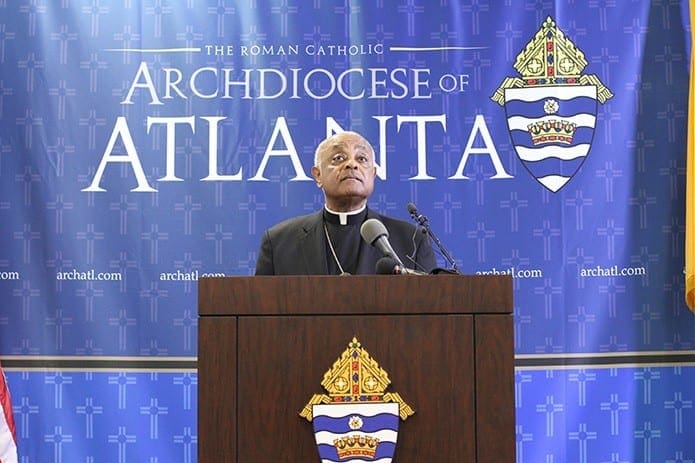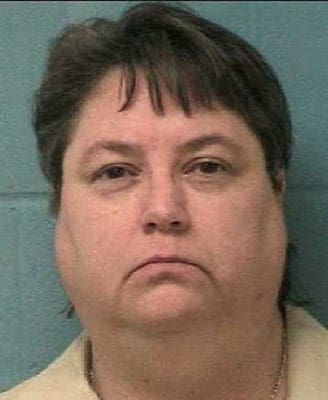 Photo By Michael Alexander
Photo By Michael AlexanderAtlanta
State board affirms death sentence for Kelly Gissendaner, despite pope’s appeal
By ANDREW NELSON, Staff Writer | Published October 2, 2015
ATLANTA—Despite a plea for clemency from a Vatican representative on behalf of Pope Francis, and from many others, the Georgia Board of Pardons and Paroles Sept. 29 denied a request to commute the death sentence of Georgia inmate Kelly Gissendaner.
She was executed by lethal injection at 12:21 a.m. Wednesday, Sept. 30.
The request from Pope Francis was sent that day by Archbishop Carlo M. Viganó, the pope’s representative to the United States. He said he was making “an urgent appeal on (Pope Francis’) behalf” to commute the sentence.
Archbishop Viganó quoted from the address by Pope Francis to the U.S. Congress Sept. 24 in which the pope spoke about abolishing the death penalty throughout the world. “I am convinced that this way is the best, since every life is sacred, every human person is endowed with an inalienable dignity, and society can only benefit from the rehabilitation of those convicted of crimes,” he said.
In his letter, Archbishop Viganó said that he did not wish to minimize the gravity of the crime for which Gissendaner was convicted and that he sympathized with the victims.
“I nonetheless implore you … to commute the sentence to one that would better express both justice and mercy,” he wrote.
Speaking at a press conference at the Chancery of the Archdiocese of Atlanta, Archbishop Wilton D. Gregory read the letter from Archbishop Viganó.
Archbishop Gregory said there would be “sorrow” over the request’s failure.
“Sorrow that another individual’s life has been taken. Sorrow that another family has suffered the loss of a loved one. Sorrow that our nation continues to feel it must impose this type of penalty. But hope that other jurisdictions will remove the death penalty. Nineteen states have removed the death penalty. We certainly would hope Georgia will consider that as a reasonable and merciful option,” Archbishop Gregory said.
Gissendaner was the first woman executed in Georgia in 70 years. She was convicted in the 1997 murder of her husband, Douglas Gissendaner. Prosecutors said she conspired with Gregory Owen, her boyfriend, who stabbed the husband to death. Owen testified against Gissendaner in a plea deal that left him with a sentence of life in prison without chance for parole. Her application for clemency notes that she has been a model prisoner and that the person who actually carried out the crime received a lighter sentence than she did.

Kelly Renee Gissendaner
Archbishop Gregory also wrote the state board Sept. 21, asking “for mercy for Mrs. Gissendaner.”
“As one of the shepherds of the Catholic Church in Georgia, I seek to contribute to a civilization that promotes human dignity, by striking a balance between the demands of justice and the need for charity. Commuting the death sentence of Kelly Gissendaner to one of life without parole is compatible with that goal,” he wrote.
Her three children asked for clemency, her son testifying on her behalf before the state board. The relatives of Douglas Gissendaner issued a statement urging her execution.
A Vatican appeal against inmate executions happens regularly.
“The recent popes have long spoken out in favor of the abolition of the death penalty. The U.S. bishops, as a body, have repeatedly called for the abolition for the death penalty,” said the archbishop.
The Georgia case is the first since the pope spoke to Congress. It is the first opportunity for a response on a long-standing concern, said Archbishop Gregory.
“This is immediate. This effects the life of someone, perhaps even today,” Archbishop Gregory said.
Catholic News Service contributed to this story.